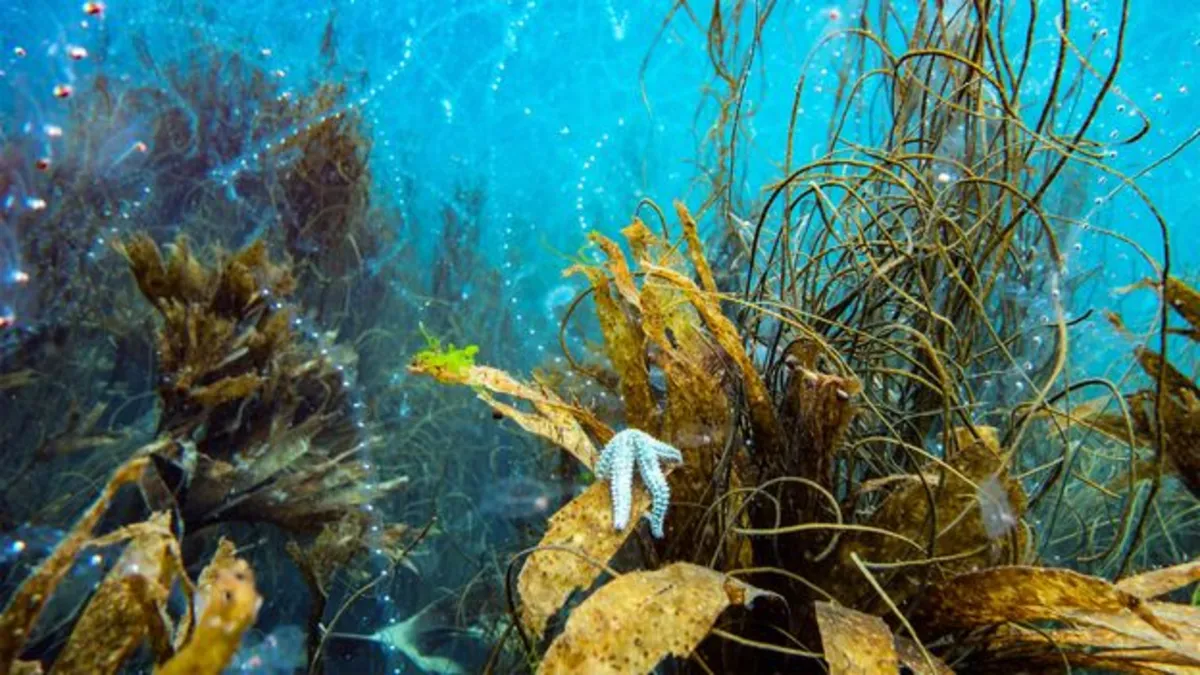
This week, we bring you a stunning collection of scientific imagery that includes breathtaking captures of the Perseid meteor shower and the mesmerizing glowing wonders of underwater life. These images highlight the ongoing environmental changes, particularly in the UK, where record warm seas have introduced an extraordinary variety of new species.
Britain's seas have experienced their warmest start to the year since records began. According to a comprehensive analysis by the BBC, the average sea temperature from January to the end of July was over 0.2°C (approximately 32°F) higher than any previous year since 1980. This increase in temperature has attracted fascinating marine life to UK waters, including bluefin tuna and salps—glowing marine organisms that resemble jellyfish and are rarely observed in British waters. Mark Poynting and Justin Rowlatt report on this remarkable phenomenon.
In another exciting development, a team of astronomers has captured the sharpest image ever of a high-speed comet visiting our Solar System from beyond our Milky Way galaxy. Utilizing NASA's Hubble Space Telescope, researchers have photographed comet 3I/Atlas, which is only the third known interstellar visitor. NASA estimates that this celestial object was traveling at an astonishing 130,000 miles (or 209,000 km) per hour, marking the highest velocity ever recorded for a comet. "It's like glimpsing a rifle bullet for a thousandth of a second," said David Jewitt, an astronomer at the University of California, Los Angeles, and the science team leader for the Hubble observations.
In British Columbia, Canada, a peculiar phenomenon has captured the attention of researchers. Every decade, hairy, orange-black caterpillars swarm the region, only to disappear shortly thereafter. Judith Myers, a professor in the Department of Zoology at the University of British Columbia, has dedicated five decades to studying these Western tent caterpillars. Her latest research concludes that a specific virus is responsible for their boom-and-bust cycles. Surprisingly, these fuzzy insects show remarkable resilience to climate change.
Meanwhile, scorching heatwaves are wreaking havoc across southern Europe, fueling numerous wildfires and forcing thousands of people to evacuate their homes. Parts of Spain, Portugal, France, and Italy have issued red alerts for heat, with temperatures soaring above 40°C (about 104°F). Scientists warn that climate change is contributing to warmer, drier conditions in the Mediterranean region, which in turn is leading to longer and more intense fire seasons. Since the 1980s, temperatures in Europe have risen at twice the rate of the global average, raising concerns for future ecological stability. Rachel Hagan and Ruth Comerford provide further insight into this urgent situation.
Stay tuned for more updates on these significant scientific developments, as we continue to explore the wonders of our planet and beyond.